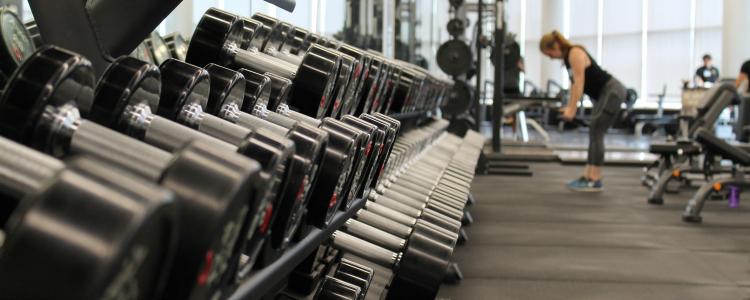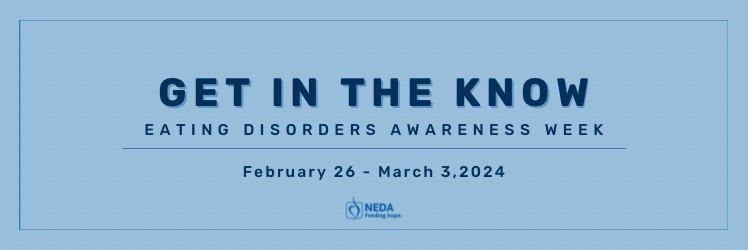Fitness is a state of health and well-being. Influence, by definition, is the capacity to affect the character and behavior of another. Having the ability to influence means you’ve earned credibility. You’ve earned respect. You are trusted. Sometimes, this incredible responsibility gets lost in the day-to-day. In fact, sometimes it’s forgotten entirely.
No matter your profession, how you present yourself is important. In the fitness industry, it’s even more so. Whether teaching a class or posting a #fitlife for the world to see, the image someone portrays externally can have a profound impact on how people view fitness, and themselves.
Fitness imagery can be both positive and negative. Sure, photos of a physique can be inspirational (and aspirational). Posting food choices and popular brand partnerships can also be meaningful. An instructor kicking off a class with a story about how “they are totally off their routine” this weekend can also be relatable and charming. These somewhat innocent actions, however, often cause more harm than good.
There is a disconnect between the images most instructors and bloggers post and what’s being said to accompany those images. In fact, it’s skewing the reality of what fitness is and means. In real life, fitness is intimidating. Difficult. Sweaty. Imperfect. A commitment. Something that can save a life; or take someone out of a dark place if it’s done in a healthy way (under the supervision of a medical and/or trained professional). Where are the posts that show this authentic side of fitness? Where is this communication?
It may be out there, but if it is, it’s incredibly overwhelmed by images of perceived perfection. The selfies. The full-face makeup and done-up hair. The matching sets. The brand tags. These are the most common fitness images we see, yet, they don’t reflect reality. In short, the image of fitness has become an aesthetic instead of a lifestyle. It needs to stop. We need to do better. Here’s how.
You are what you post on Instagram
While a simple Instagram post may seem innocent, it can have effects that reverberate well past an algorithm change. Before posting, we all should take a minute to gut check: Why am I posting this? How will it make those who follow me or take my class feel about themselves and their fitness journey? Being in a position of influence, you want to make careful considerations about who is consuming your content, not about how it makes you feel.
You are who you follow (and respond to)
Only following your fitness friends, celebrities, or other trainers/instructors doesn’t make anyone feel good about following you. It makes you look exclusive, instead of inclusive (I talk to studios about this all the time). I’m not suggesting you should follow everyone who follows you. I’m suggesting you should regularly engage with those who support you. Along those same lines, personally responding to tags or DMs is crucial. None of this heart emoji stuff. Making people feel valued is incredibly important; it can directly affect how they view their fitness journey. People look up to you; be a role model. How would you like to be treated?
Fame is not influence
How many followers you have does not correlate to how effective you are as an influencer. Pause. Repeat. How many likes and comments about how attractive you are doesn’t make you famous, either. It’s quality over quantity. Are you being talked about as someone who makes others feel good about themselves? Encouraging? Balanced? Authentic? These are all words related to influence. If you are an instructor or blogger solely to be famous, that’s wonderful. But, if that’s the case, please don’t call yourself an influencer. Wanting to be paid, have a full class, or be instafamous isn’t about anyone else but you.
Spend words like money
The words you use to accompany your images – or the words you choose to use in class – make a profound impact on those who are receiving the communication. Some words and phrases should be avoided, as they can unintentionally create negative thoughts and behaviors. For example, getting ready for a season, discussing calories, unhealthy workout habits, and “sweating off” things should be avoided.
As you work on being mindful, commit to building people up from the inside, instead. Comment on how hard they are working, how much progress they are making, and how you’re a work in progress, too. If “progress” to you means changing your body (or helping others change theirs), reassess your thoughts and words to not focus on size or shape. Oh, and the most important word you can use in class or on social media? Someone’s name or handle.
Actions speak louder
You can say you support body positivity – and even post about it – but actions speak louder than words. Instead of simply talking the talk, walk the walk. Get involved with organizations like NEDA. Alter your language in class and on your pages. Be more aware of the energy you are putting out into the universe, and what you want in return. Finally, find time for self-discovery. Understanding how you feel about yourself today is the first step to becoming the fitness professional you want to be in the future.
Kerry O’Grady is a Clinical Assistant Professor at the NYU School of Professional Studies – Division of Programs in Business. An award-winning integrated marketing and public relations professional, she is a regularly sought-after media expert, as seen in The Washington Post, The New York Post, The Telegraph, and on ABC News’ digital podcast “Uncomfortable,” to name a few. A passionate fitness enthusiast, she is also the creator and writer for the fitness blog KerryLeeintheCityFit (Instagram @kerryleeinthecity). Additionally, she’s currently pursuing her Ed.D. at Vanderbilt University in Leadership and Learning in Organizations.






